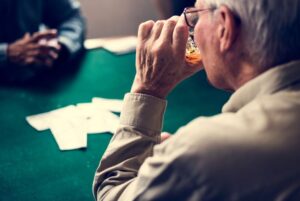 Abilify was first approved by the U.S. Food and Drug Administration (FDA) in 2002. Since that time it has become one of the most broadly-prescribed medications in the world. It is an atypical antipsychotic medication. It is called “atypical” because it is different from “conventional” or first-generation antipsychotics. Atypical antipsychotics, or second-generation antipsychotics, are the preferred drug for acute psychoses.
Abilify was first approved by the U.S. Food and Drug Administration (FDA) in 2002. Since that time it has become one of the most broadly-prescribed medications in the world. It is an atypical antipsychotic medication. It is called “atypical” because it is different from “conventional” or first-generation antipsychotics. Atypical antipsychotics, or second-generation antipsychotics, are the preferred drug for acute psychoses.
There are five different types of acute psychosis:
- Delusions–fixed, false beliefs even in the face of evidence to the contrary
- Hallucinations–perceived experiences that aren’t real
- Disorganized thought–lacking a logical or goal-oriented thought process
- Disorganized behavior–faulty goal-directed behavior which usually leads to a decline in daily functioning
- Negative symptoms–a decrease or loss of normal functioning in speech patterns, motor skills, energy, concentration, and pleasure
Although it’s rare, some people develop uncontrolled urges or compulsive behaviors while using Abilify. The behaviors tend to dissipate after lowering the dose or stopping Abilify, but some patients have suffered serious harm due to this side effect. At Northern Illinois Recovery, we treat gambling addiction, as well as many substance addictions through our addiction treatment programs in Illinois
Jump to Section
Why is Abilify Prescribed?
Second-generation antipsychotics like Abilify have fewer side effects regarding extrapyramidal symptoms (drug-induced movement disorders) compared to typical antipsychotics. Abilify (aripiprazole) is used either alone or combined with other medications to treat mental conditions such as:
- Bipolar I disorder (manic-depressive illness)
- Major depressive disorder (MDD)
- Schizophrenia
Abilify is also sometimes used to treat irritability associated with autistic disorder and Tourette syndrome in children.
What are the Side Effects of Abilify?


- Headache
Headache is the most common side effect and was experienced by 27% of adults using Abilify during the clinical trials.
- Nausea and vomiting
15% of adults reported nausea but vomiting was less common.
- Constipation
- Sleeping problems
- Changes in blood pressure
The Abilify Lawsuit
The connection between Abilify and gambling and other compulsive behaviors isn’t new. One of the first studies relating to the alleged pathological side effects of Abilify was published in 2008. It involved a patient who developed symptoms of hypersexual behavior (sex addiction) after taking Abilify for schizophrenia.
By 2014, many reports of Abilify and gambling problems had been reported to the FDA. This led the FDA to issue a drug safety communication advising doctors and their patients to be aware of signs of uncontrollable urges to gamble, binge eat, shop, and have sex while using aripiprazole-based medications such as Abilify.
When an individual experiences a pathological symptom, an irregularity in the brain makes it immensely difficult for them to stop without help. Compulsive gamblers have a hard time walking away from blackjack tables, poker games and betting on sports. The compulsive gambling side effect of Abilify motivates users to gamble by any means necessary, even if it leads to gambling away savings, borrowing money, or gambling on credit.
Hundreds of people filed lawsuits alleging that Abilify caused them to compulsively spend money, gamble, or eat. According to the lawsuits, the makers of the drug didn’t provide adequate warning to the drug users about the side effects which included uncontrollable urges to gamble and a number of other impulsive behaviors linked to Abilify.
The other compulsive behavior side effects included thoughts of suicide and attempts and compulsively playing video games and looking at pornography. Additional lawsuits also blame the drug for tardive dyskinesia. Tardive dyskinesia is a condition that causes involuntary movements. Lawsuits further revealed that Abilify labels in Europe and Canada warned about the risks of “pathological gambling” but these warnings weren’t on the labels in the U.S. before January 2016.
These are not the first legal actions taken against Abilify. In 2007, the company paid more than $515 million to settle federal charges for illegally marketing the drug for off-label uses. While it is legal for doctors to prescribe medication for off-label use, it is illegal for a drug maker to market it for off-label use.
Bristol-Myers Squibb agreed to pay a $19.5 million settlement to 43 states and the District of Columbia in December 2016. In February 2019, Bristol-Myers Squibb and Otsuka America Pharmaceutical settled with thousands of people who sued the companies over compulsive behavior they believe was caused by Abilify.
The terms of the settlement were confidential. The settlement covered people who were taking part in mass litigation in federal court in north Florida along with mass litigations in state courts in California and New Jersey. It also applies to any other cases in federal and state courts. Despite the claims related to Abilify, the drug is still approved by the FDA.
What is Gambling Addiction?
Also called gambling disorder, compulsive gambling is the uncontrollable urge to keep gambling despite the damage it causes to your life. Gambling means that you’re willing to risk something of value to you in the hope of getting something of higher value. It can stimulate your brain’s reward system just like drugs or alcohol can, and lead to addiction. Treating gambling disorder can be a challenge, but people have gotten help through professional treatment.
Symptoms of Gambling Disorder
- Having a preoccupation with gambling
- Needing to gamble increasing amounts to get the same thrill
- Not being able to cut back, control, or stop gambling
- Gambling to escape problems
- Being restless or irritable when your try to cut down on gambling
- Gambling to try to get back lost money
- Lying to family members and others to hide how much you gamble
- Risking important relationships, a job, or school because of gambling
- Asking others to help you out of financial trouble because of gambling debts
Other Drugs that Cause Gambling Addiction
Some medications used to treat restless legs syndrome (RLS), Parkinson’s disease, and depression have a rare side effect that can cause compulsive behaviors, including gambling.
These drugs are called dopamine agonists. They stimulate the parts of the brain that are influenced by dopamine by imitating the actions of dopamine when dopamine levels are low. They fool the brain into thinking dopamine is available.
Dopamine
Dopamine is a neurotransmitter made by your body to send messages between nerve cells. It plays a part in how we experience pleasure. It is spread along four main pathways in the brain and you don’t notice it until there’s a problem. Too little or too much can result in a variety of health problems.
Using a dopamine agonist to adjust dopamine levels, up or down, can bring about good and bad results. These medications have some risks including problems with impulse control and addiction. Compulsive gambling, shopping, sex, binge eating, and other behaviors may begin or get worse.
Treating Abilify and Gambling Addiction


Our treatment programs include:
- Detox–for individuals who need medical supervision to withdraw from a drug
- Residential Program–an inpatient fully supervised program
- Partial Hospitalization Program–the highest level of outpatient care
- Intensive Outpatient Program–a step down from the PHP
- Outpatient Program–for people who have completed higher level of care
- Sober Living Program–to help transition into regular daily life
In addition to our treatment programs, we can provide therapy treatment designed specifically for individual needs. This includes:
- Behavioral therapy
- Individual and group therapy
- Family therapy
- Gender-specific therapy
- Holistic therapy
We know that everyone is unique. But we also know that we are all alike in some ways. That’s why our drug addiction treatment in Illinois is an evidence-based effective program. Addiction is too big a problem to leave to chance. Contact us today. Let’s get started.


Licensed Physician and Surgeon
Dr. Beth Dunlap, a board-certified addiction medicine and family medicine physician, and is the medical director at Northern Illinois Recovery Center. She is responsible for overseeing all the integrated medical services at both campuses. Beth completed medical school, residency, and fellowship at Northwestern University, where she continues to serve on the faculty as a member of the Department of Family and Community Medicine. She has extensive experience in addiction medicine at all levels of care, and her clinical interests include integrated primary care and addiction medicine, harm reduction, and medication-assisted treatment.



